Hey there! Have you ever found yourself in a situation where a simple library fine turned into a daunting hassle? You're not alone, and there's a way to voice your concerns effectively! In this article, we'll dive into crafting a persuasive letter template for disputing library fines that can help you get your point across clearly and respectfully. So, let's explore how you can tackle this issue and advocate for yourselfâread on for some helpful tips!
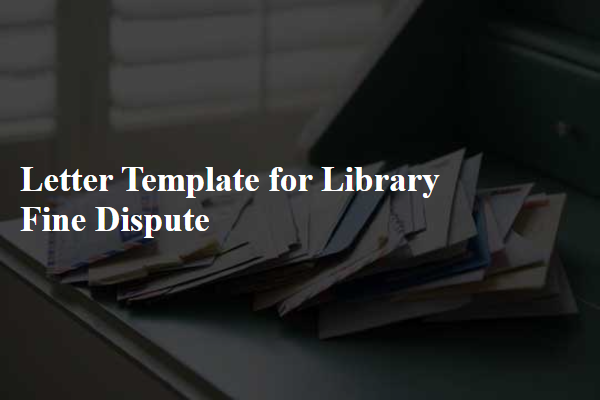
Clear and concise explanation
Library patrons often face disputes over fines, particularly when circumstances lead to perceived inaccuracies in charges. For example, a student at the University Library may believe a fine for a late return is unjust due to an unexpected campus event, such as a prolonged power outage affecting access to library resources. Furthermore, discrepancies in returned items, like a book categorized under the Fiction section, may have not been accurately logged upon return, thus leading to further confusion about overdue statuses. Communicating directly with library staff, including details such as the specific item, return date, and any supporting evidence, can help clarify misunderstandings and potentially resolve the fine dispute amicably.
Relevant account and transaction details
When disputing a library fine, relevant account details include the library card number, which uniquely identifies a patron's borrowing history. Transaction details should encompass the specific book title (including author and ISBN), date the book was borrowed, due date, and date returned. Additionally, referencing any previous communications regarding this fine is crucial. Include specific amounts for the fine in question, such as $2.00 for late returns or replacement fees for lost items, ensuring transparency. Also, document any discrepancies, such as claimed return dates contrasting with library records, to support your case effectively.
Supporting evidence or documentation
Disputing library fines requires a clear presentation of supporting evidence or documentation. Patrons should gather essential items, including library receipts indicating borrowed materials, due dates, and corresponding return dates. Digital transaction logs accessible through the library's online portal provide verification of borrowing history. Additionally, email correspondence with library staff regarding the fine can demonstrate previous communication regarding the issue, especially if there are discrepancies or misunderstandings. If relevant, collecting witness statements from individuals present during interactions at the library may aid in substantiating claims. Compiling these documents ensures a comprehensive approach to resolving disputes over library fines effectively.
Polite and respectful tone
Disputing library fines, particularly when patrons like individuals in community centers might not be aware of late return policies, requires attention to detail. Patrons must reference specific dates (such as the exact return date of November 15, 2023, compared to the due date of November 1, 2023) to clarify late fees incurred. Additionally, including titles of the borrowed books, such as "The Great Gatsby" or "1984," can help identify the disputed fines more clearly. Ensuring to mention any unique circumstances, like unexpected personal emergencies or illnesses that prevented timely returns, will further enrich the context and support the case. It is essential to maintain respect and politeness throughout, encouraging cooperation with library staff for a potential resolution, reflecting community engagement and understanding.
Request for reconsideration or resolution
A library fine dispute can often stem from various issues, including misunderstandings about return dates or misplaced notifications. Patrons may receive fines for overdue items, such as books, magazines, or DVDs, which can accumulate significantly, potentially reaching amounts over $50. Many libraries, including the New York Public Library and the Los Angeles Public Library, have specific policies for disputes that involve reconsideration of fines based on circumstances like illness or travel. Providing detailed account information, including borrower ID numbers and item descriptions, can aid in the resolution process. Engaging in respectful dialogue with library staff is essential, as many libraries encourage open communication and have formal channels for appeals or reviews, often resolving disputes within a week, helping to maintain positive relationships with community members.
Letter Template For Library Fine Dispute Samples
Letter template of library fine dispute regarding overdue notifications.
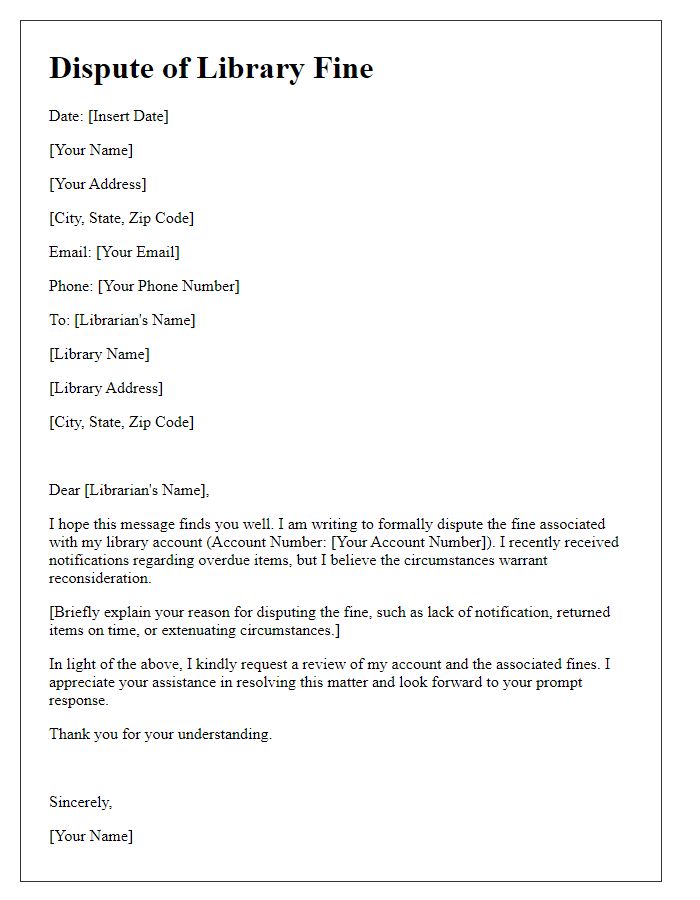

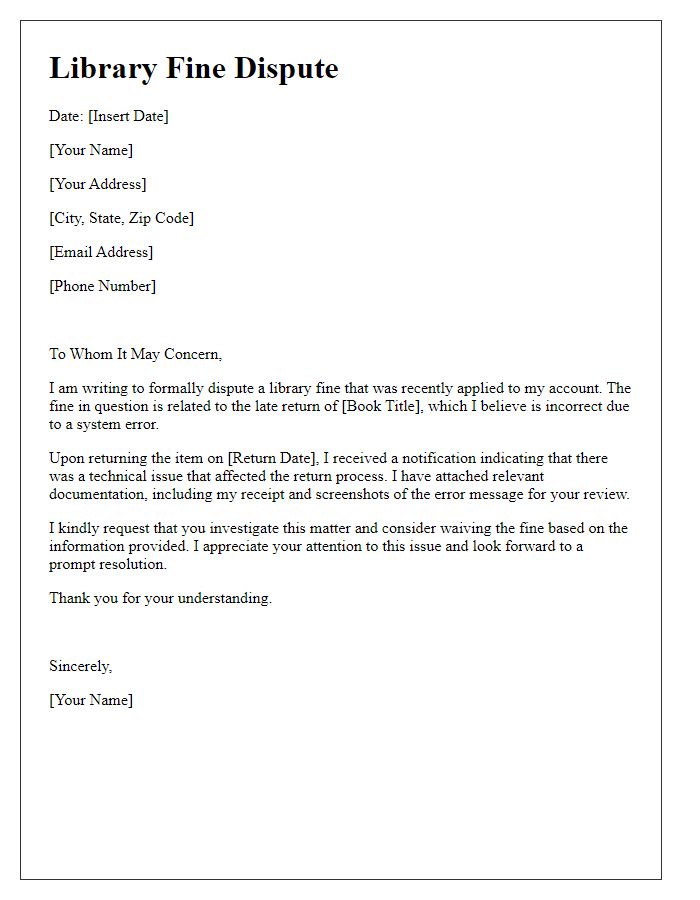
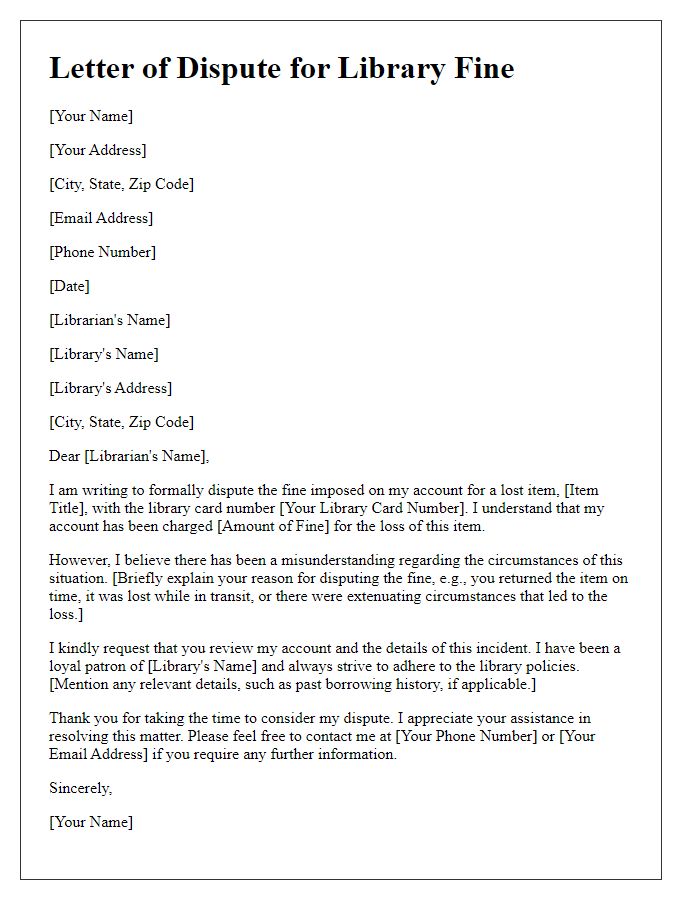
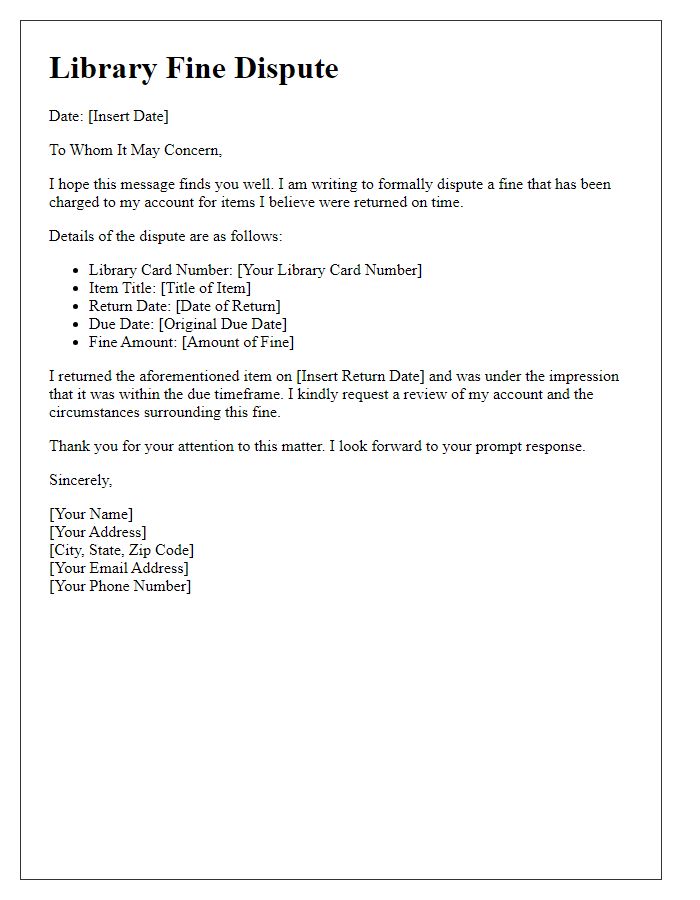
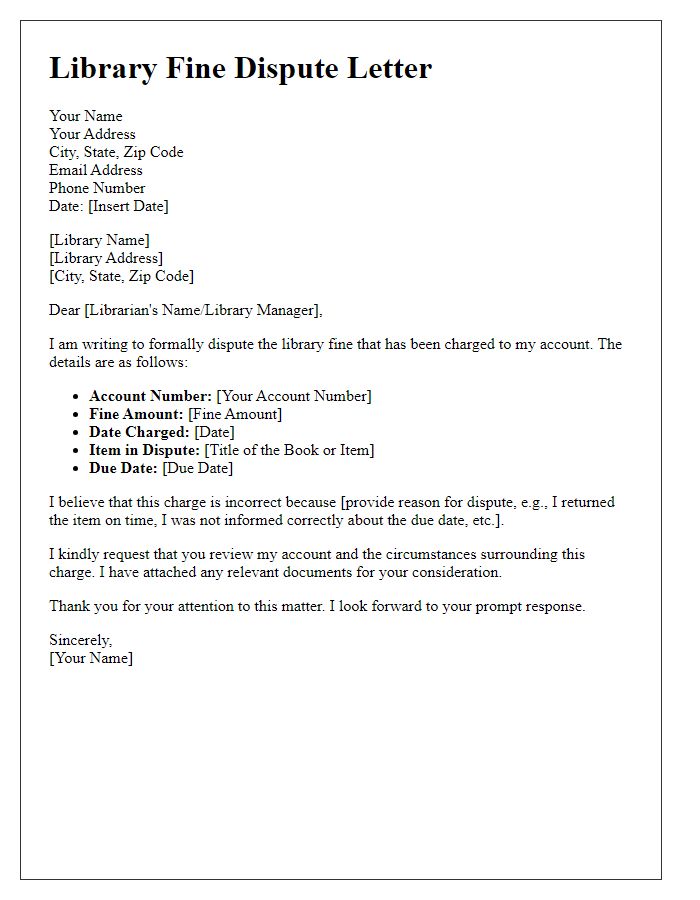
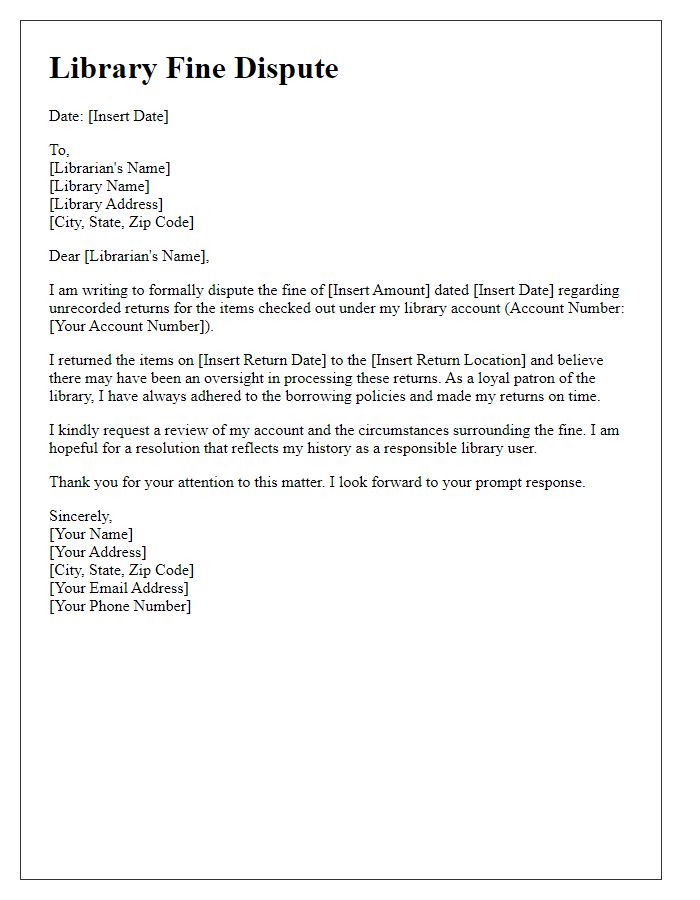
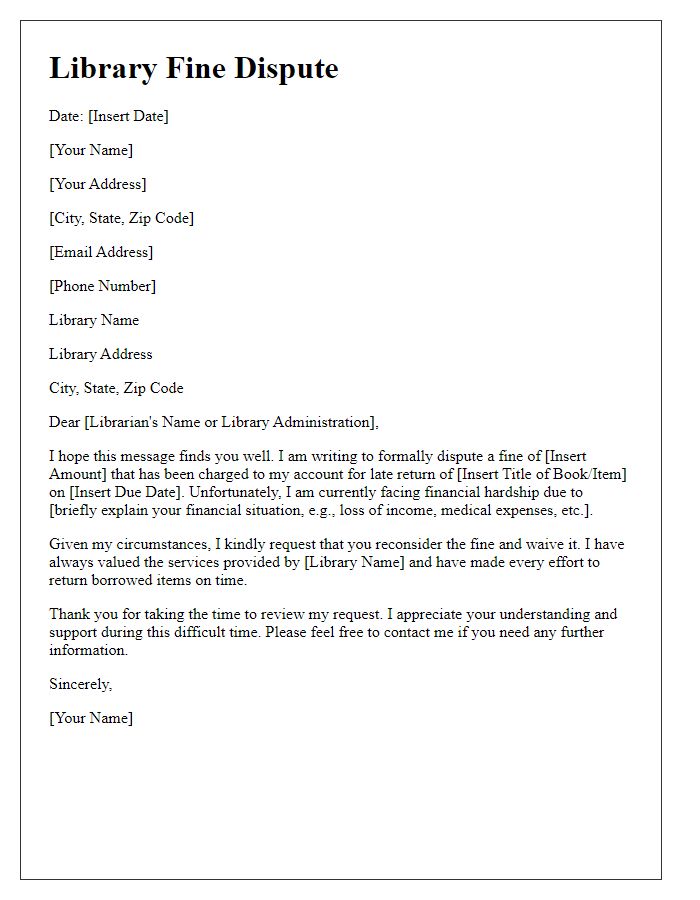
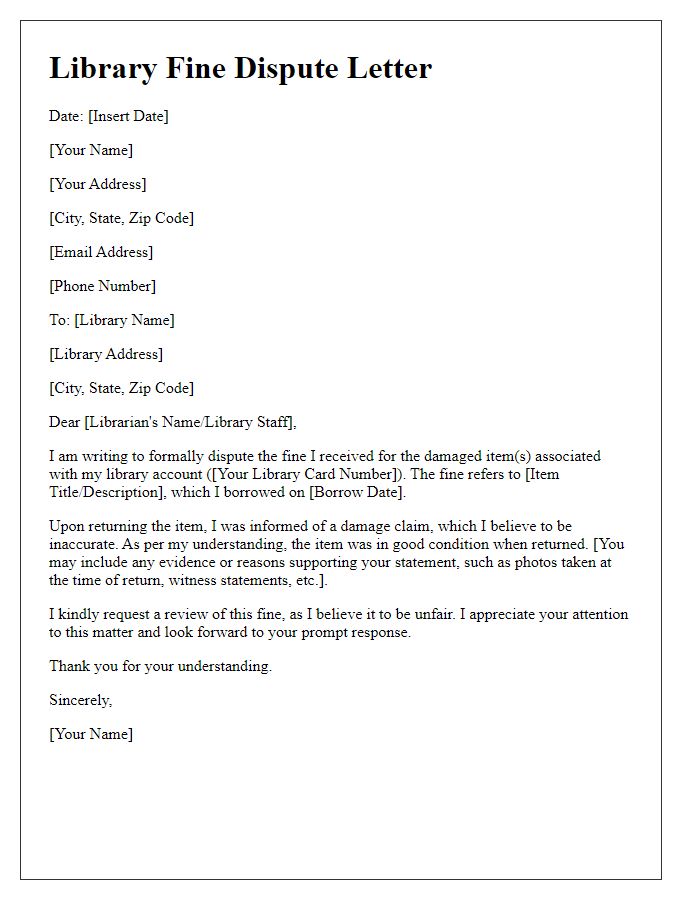
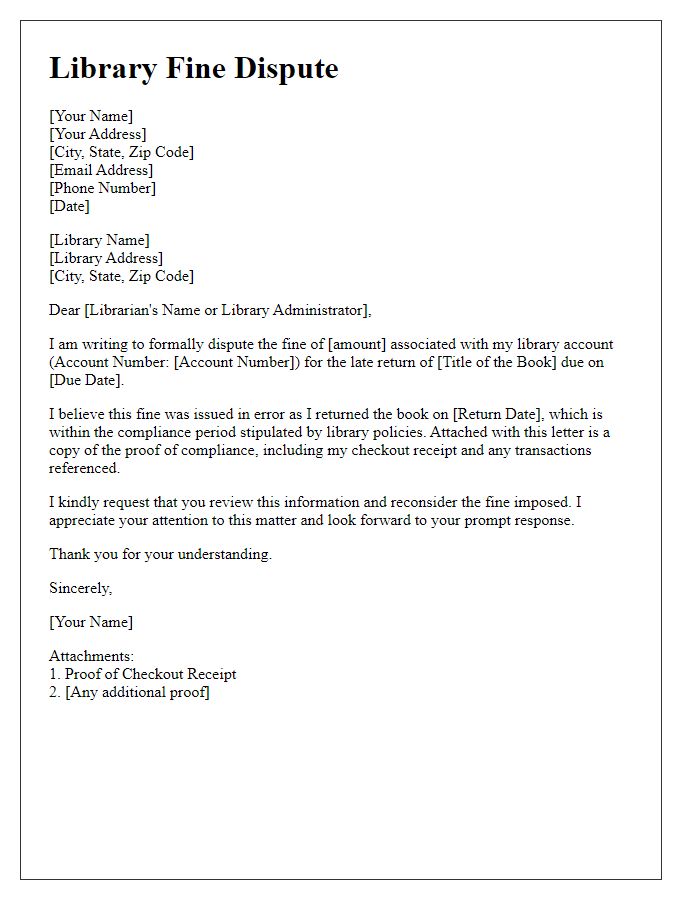
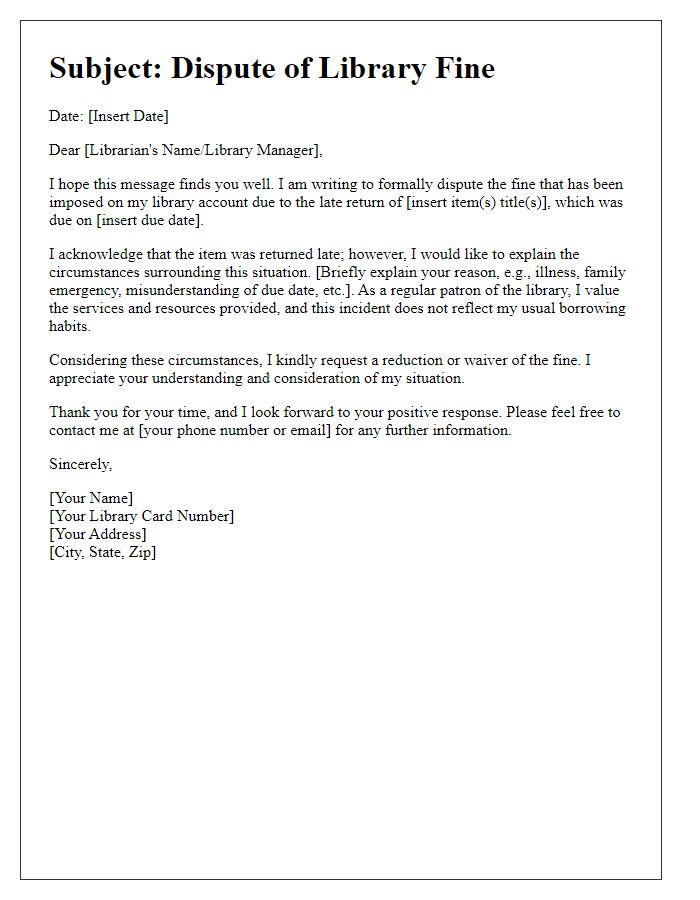

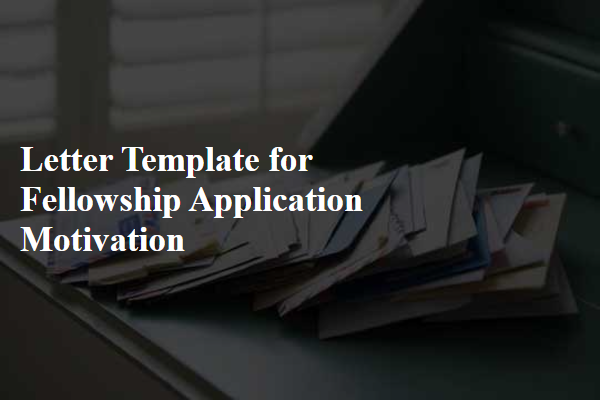
Comments